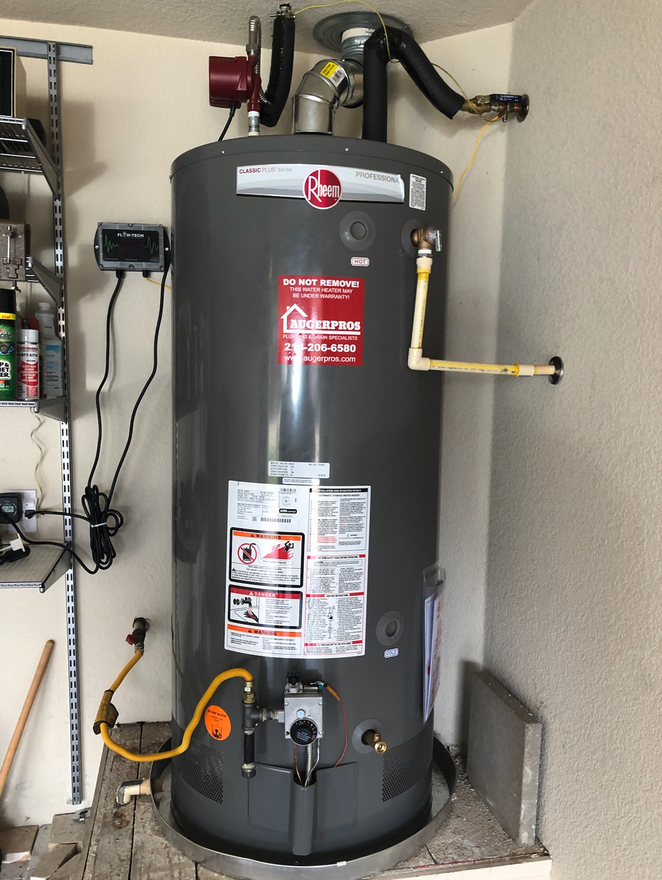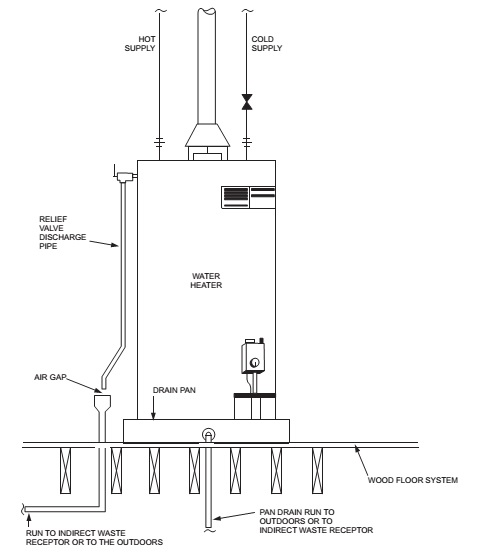Are you planning to install or replace a water heater in Utah? Navigating the code requirements can be tricky, but it’s crucial to ensure safety and efficiency in your home.
Understanding these regulations not only helps you avoid penalties but also optimizes your system’s performance and longevity. Imagine the peace of mind you’ll feel knowing your installation is up to code and your home is safe. Dive in to discover what you need to know about water heater code requirements in Utah, and learn how to make informed decisions for your household.
Page Contents
Installation Standards
Utah’s water heater code requirements ensure safe installation and operation. These codes address placement, venting, and temperature settings. Proper adherence prevents hazards and promotes energy efficiency.
Permits And Approvals
Utah has rules for water heater installation. These rules keep everyone safe. Before starting, get a permit from your local building office. This step is important. Permits ensure the work follows safety codes. The building office checks if everything is done right. It is better to be safe than sorry.
Licensed Professionals
Use a licensed professional for water heater installation. They have the right skills. They know the state’s rules well. This ensures the job is done safely. Licensed professionals follow local codes. They also help get the necessary permits. Trusting them means fewer problems later. Always check if they have a valid license.

Credit: inarco.com
Safety Regulations
Temperature control is vital for water heaters. It keeps water from getting too hot. Water should not be over 120 degrees Fahrenheit. This prevents burns and saves energy. A thermostat helps control the temperature. It should be easy to reach. Always check if it works properly. A faulty thermostat can cause problems. Keep it in good condition.
Pressure relief valves are crucial for safety. They stop water heaters from exploding. The valve releases extra pressure. This happens if pressure gets too high. The valve should be installed correctly. It should be checked regularly. A blocked valve can be dangerous. Make sure nothing blocks it. Always keep it clean and clear.
Energy Efficiency Codes
Insulation keeps heat in the water heater. It saves energy. Thick insulation is better. It stops heat from escaping. Utah codes say water heaters need good insulation. This makes them work better. It also saves money on energy bills. Insulating pipes is important too. It prevents heat loss. Use foam pipe covers for this. These covers are easy to fit. They help keep water hot.
Energy Star is a special label. It shows which heaters save energy. In Utah, many water heaters need this label. Energy Star heaters use less power. They help the environment. They also reduce costs. Look for the Energy Star logo. It means the heater is efficient. It meets the Utah energy rules. Saving energy is good for everyone.
Credit: secure.utah.gov
Ventilation Requirements
Indoor water heaters need special care. Ventilation is important. Outdoor units have more space. Less ventilation is needed. Indoor units need fresh air. This stops fumes. Safety is key.
Combustion air is vital. Heaters need oxygen. Air vents are needed for this. Without air, heaters won’t work. Proper supply keeps heaters safe. Blocked vents are dangerous. Always check vents.
Electrical Specifications
Proper wiringis key for a safe water heater. Use wires with the right thickness. Too thin wires can cause dangers. Make sure wires are not broken. Broken wires can lead to problems. Keep wires away from water. Water and electricity do not mix well. Check the wire connections. Tight connections are important. Loose connections can spark. Sparks can cause fires.
Use a dedicated circuit. This means the water heater has its own line. No sharing with other appliances. This keeps the system stable. Stability is important for safety.
Install a circuit breakerfor the water heater. Breakers stop too much electricity flow. Too much flow is dangerous. The breaker should match the heater size. Too large breakers won’t trip. Too small breakers trip too often. This can be annoying. Use a ground fault circuit interrupter. This stops electricity leaks. Leaks are unsafe. Safety is always first.
Plumbing Connections
Pipes must be strong and safe. Copper pipes are common. They last long and handle heat well. PVC pipes are also used. They are light and easy to install. PEX pipes are flexible and resist freezing. Each pipe type has its own use. Choose the right one for your needs.
Drainage systems keep water away. Proper drainage prevents flooding. Sloped pipes help move water fast. Vents keep air flowing. They stop bad smells. Traps hold water to block gas. Keep your drains clean and clear. Check them often to avoid clogs.
Inspection And Testing
Water heaters need regular checks. In Utah, inspections should happen yearly. This keeps the heater safe and working well. Regular inspections stop leaks and other issues. A professional can find problems early. This helps avoid bigger costs later. Kids can learn that inspections keep homes safe.
Testing makes sure water heaters are safe. Professionals use special tools. They check for leaks and damage. The pressure valve is also tested. This valve keeps the heater from exploding. Testing finds problems before they become dangerous. Always let a trained person do these tests. Safety first.

Credit: codes.iccsafe.org
Conclusion
Understanding water heater codes in Utah keeps installations safe and legal. Compliance prevents costly mistakes and ensures efficient operation. Regular checks maintain your water heater’s performance. Familiarize yourself with local regulations for peace of mind. Knowledge empowers homeowners to make informed decisions.
An expert can help navigate specific requirements. Keep safety a priority by adhering to these guidelines. Proper installation and maintenance extend your heater’s lifespan. Stay proactive to avoid unexpected issues. Address concerns promptly to maintain reliability. Reliable heating keeps your home comfortable year-round.
Make water heater safety your priority today.
